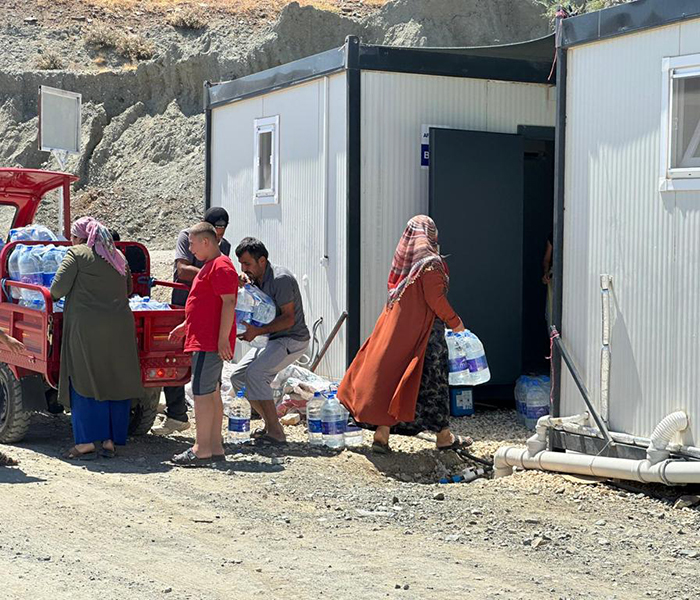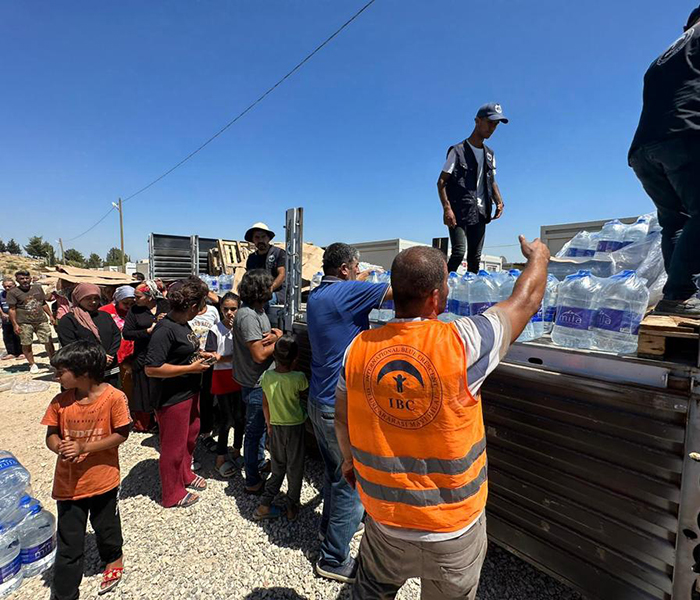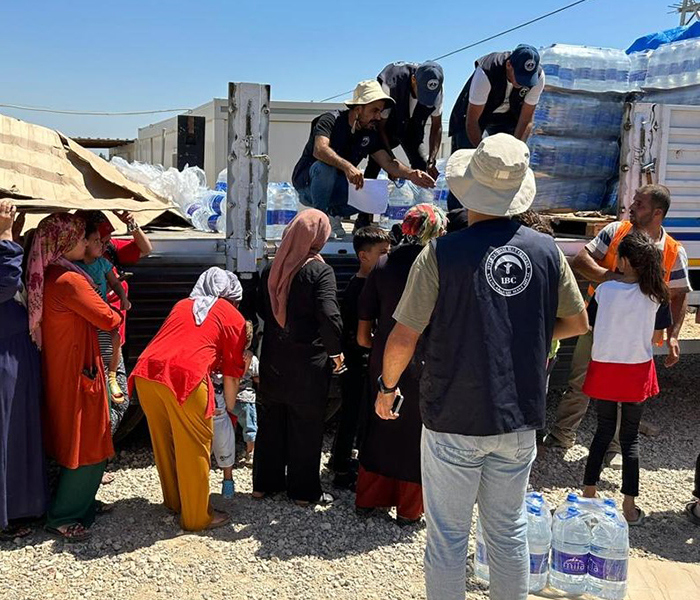
 |
 |
 |
Clean water is one of the most basic needs in the region following the February 6 earthquakes that shook Turkey.
Following the earthquakes, which affected 11 provinces in Turkey and the lives of approximately 14 million people, municipalities and experts have begun to supply tap water to many parts of the region, but both municipalities and experts say that this water is not yet clean enough for use in some cities and districts. In addition, groundwater is also likely to be contaminated due to the earthquake damage to infrastructure and debris dumping.
Especially in Hatay, drinking water shortages have been the biggest problem since the first days of summer. The emergency drinking water problem in the city continues to increase.
The region's need for clean, potable water is met through donations or with the support of municipalities and non-governmental organizations active in the region.
IBC is one of the leading non-governmental organizations trying to find solutions with water tanks, tankers or small water parcels.
With the support of our donors Mustafa Torun, a businessperson, and Serdar Tokdemir, a lawyer, 2 trucks full of drinking water were delivered this week to the Temporary Living Area consisting of 400 containers in Kırıkhan district of Hatay. With these donations, the clean water needs of a total of 3000 earthquake victims, including 1170 people sheltering in the area and 1830 people sheltering in AFAD's camps in Antakya, were met.
While intensive efforts are being made under the coordination of AFAD to find more permanent solutions, the solution lies in the safe delivery of tap water to the public.
In order for water to be considered microbiologically safe for human health, the regulation requires a chlorine level of 0.3-0.5 ppm (parts per million) at the end point. Unfortunately, this ratio cannot be achieved in the earthquake zone. Drinking water treatment systems do not really work. In some regions, water is not chlorinated sufficiently and at the required time intervals and disinfection is not completed.
Another problem is that the wastewater infrastructure was damaged in the earthquake and this threatens the existing water resources... Due to the earthquake damage to the sewerage and wastewater treatment systems that should have been connected, domestic wastewater mixed with soil, groundwater and surface water. They, in turn, contaminated the water in the region on a microbiological scale. While intensive efforts are being made to bring the water in the region to safe levels, all teams are working in mobilization to prevent water-borne infectious diseases.
Trucks of aid are not coming to the region as they did shortly after the earthquake disaster.
While the number of donations is decreasing, the number of volunteers is not as intense as before.
There is still a need for many volunteers in the region, these needs do not and will not end, and in-kind donations will be needed more and more every day.
To support the relief efforts in the region: [email protected]
NEWS by Fuat Kozluklu